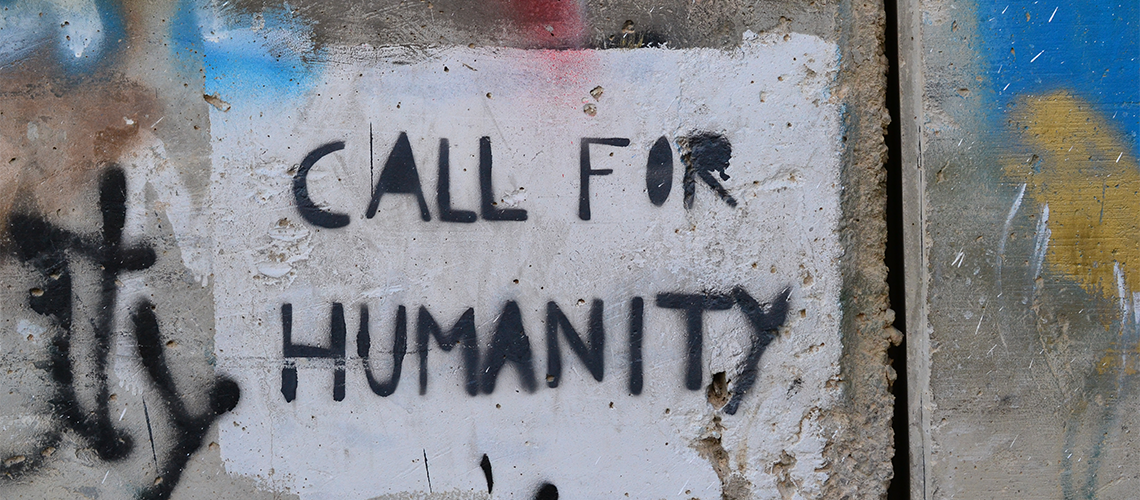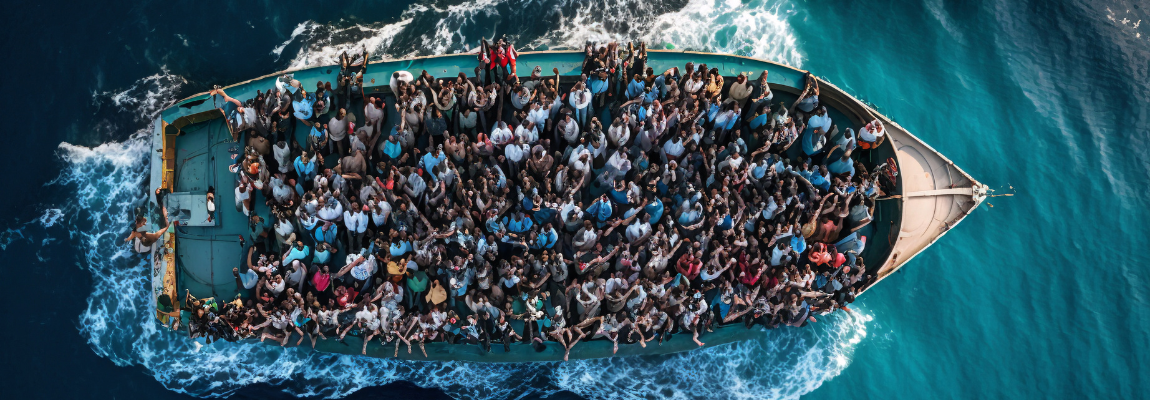Middle East: test for effectiveness of international law as death toll mounts
Emad Mekay, IBA Middle East CorrespondentTuesday 14 November 2023

The surprise attack launched by Hamas against Israel on 7 October and the ensuing violence and loss of life has prompted international law experts to say that one way to de-escalate is honouring obligations under International Humanitarian Law.
In the immediate aftermath of Hamas’ October 7 attack, the International Bar Association issued a statement condemning the militant group, while urging Israel to ensure its military response remains within its commitments to international law.
‘These indiscriminate and targeted atrocities against Israeli citizens contravene an unequivocal, non-derogable prohibition under international law,’ the statement says. ‘The murder of civilians, the assaults, and the trespass into private homes to kill and maim are all internationally recognised crimes of profound gravity.’
The statement acknowledges that Israel has an inherent right to self-defence against these unlawful attacks. ‘However, in doing so, it, too, must ensure that civilian populations are shielded from harm and that military actions are conducted with a clear commitment to the international legal principles of distinction and proportionality,’ the statement says.
To date, some 1,200 Israelis and more than 12,000 Palestinians have been killed. The true toll in the besieged Mediterranean Strip of Gaza, where high-rise concrete buildings are the only way to absorb population growth, is probably higher as many are believed to remain buried under rubble. UN figures show that more than 1.5 million Palestinians have already been displaced and nearly 600,000 are crowded in shelters run by United Nations Relief and Works Agency for Palestine Refugees (UNRWA). UNRWA itself had 101 of its staff killed in the Israeli shelling.
The situation is very difficult for a state engaging in self-defence. This means that harming civilians is sometimes unavoidable. Of particular importance here is that the so-called principle of proportionality is respected
Hans Corell
Former Legal Counsel of the United Nations
Israeli forces launched scores of airstrikes, dropping weapons on wide residential areas in the heavily populated Gaza, attacks that Israeli officials say target only Palestinian armed groups. Hamas and the Jihad Group, a smaller militant faction, have both fired rockets indiscriminately towards population centres such as Tel Aviv and Hamas still holds 240 Israeli captives.
So far, war crimes committed may include indiscriminate or disproportionate use of force, the use of white phosphorus, which is a prohibited weapon, and collective punishment such as cutting off food, water, medicine and fuel, as stated by Human Rights Watch and Amnesty International. These organisations also cite the targeting of ambulances and the killing of entire families as possible atrocities. UN Secretary-General António Guterres decried 'clear violations' of international humanitarian law (IHL). ‘What we've seen unfold in Israel and in the Occupied Territories is nothing short of what I think I would call a blight on our collective conscience,’ said UN Humanitarian Coordinator Martin Griffiths. ‘All of us, we are all somehow involved in this.’
The IBA's Human Rights Institute (IBAHRI) issued a detailed statement early in November calling for an immediate ceasefire and for both sides to follow IHL principles of proportionality and of distinction between military and civilian targets. ‘Where war crimes have been committed, we remind Israel and Hamas that there will be serious consequences for those in leadership positions that have planned, facilitated and executed them,’ the statement says, noting that international criminal and humanitarian rules continue to apply in armed conflicts.
The whole idea about International Humanitarian Law is to take every and all measures necessary in order to protect human life and uphold human dignity, even in war
Anne Ramberg
Co-Chair, IBAHRI
Hans Corell, former legal counsel of the UN, who helped set up war crimes tribunals in Cambodia, Rwanda, Sierra Leone and Yugoslavia, says IHL should be respected but acknowledged thorny issues around the decades-long conflict that has lasted since Israel was founded in 1948. ‘It is extremely important that international law – in this case in particular the laws of war and humanitarian law – is respected,’ he says ‘But, as I understand it, the situation in Gaza is extremely complex. It has been said that Hamas is using the population in Gaza as human shields and that military personnel and equipment is sometimes based in civilian institutions. If so, the situation is very difficult for a state engaging in self-defence. This means that harming civilians is sometimes unavoidable. Of particular importance here is that the so-called principle of proportionality is respected.’
Anne Ramberg, Co-Chair of the IBAHRI, says respecting the law in this case has become even more crucial given the gravity of the toll on human life. ‘The whole idea about International Humanitarian Law is to take every and all measures necessary in order to protect human life and uphold human dignity, even in war,’ she says. ‘[The IBAHRI is] deeply concerned. The suffering and killing of innocent civilians, including children in large numbers, is horrific.’
Corell explains that proportionality is an integral part of international humanitarian law. ‘It regulates the conduct of hostilities, requiring that the expected incidental harm is not excessive in relation to the anticipated military advantage. But proportionality plays a greater role than this as it appears in many provisions in the Geneva Conventions of 1949 and their Additional Protocols,’ he says.
Both Corell and Ramberg correct suggestions that non-state actors, such as Hamas, are absolved from following IHL provisions as they didn’t ratify the Geneva Convention. ‘IHL should apply to both sides, even if Hamas is not a state,’ Corell says. ‘But there is a difference depending on the fact that Hamas attacked Israel on 7 October 2023 in flagrant violation of the most fundamental rules in the laws of war and national penal law. This means that Israel is entitled to self-defence. At the same time, Israel must act in conformity with IHL. In particular, access to food and drinking water, medical supplies must be secured. Some have called for a humanitarian pause to allow for aid to enter the Palestinian enclave. I fully agree.’
Ramberg argues war crimes by Hamas don’t automatically constitute justification for atrocities by Israeli troops. ‘Hamas' attack on 7 October was a serious war crime, including [as it did] cruel attacks on civilians and the taking of hostages. Israel has the right to self-defence and a duty to protect its population,’ she says. ‘However, the exercise of this right must be proportionate. Collective punishment is not permitted despite the horrors that took place on October 7. The deprivation of electricity, water, fuel, communication and food to the population of Gaza Strip; the blocking of almost all humanitarian relief efforts; and a bombing campaign that has caused civilians and civilian infrastructure unprecedented casualties are actions most likely to be judged in retrospect as collective punishment.’
Image credit: Art and writings on the wall in Bethlehem, between Palestine Westbank and Israel. graceenee/AdobeStock.com

